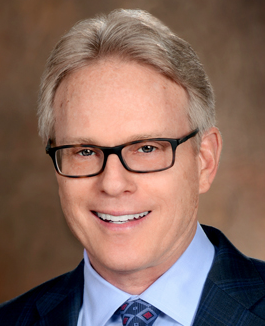
State: N.J.
Geaney: Medical Providers Win in Supreme Court on Statute of Limitations Issue: [2020-02-06]
In New Jersey, a medical provider dispute arising from a work injury can only be filed in the Division of Workers’ Compensation ever since 2012.

John H. Geaney
But the 2012 amendments to the New Jersey Workers’ Compensation Act failed to answer one fundamental question: How long does the provider have to bring a claim in the name of the injured worker?
Are medical providers bound by the same two-year rule that applies to claimants? The Supreme Court provided the final answers Monday in The Plastic Surgery Center P.A. v. Malouf Chevrolet-Cadillac Inc.
The case involved several claim petitions filed by The Plastic Surgery Center more than two years after the employee’s accident. The judge of compensation ruled that the claims were out of time, but the Appellate Division reversed in favor of the medical providers.
The Supreme Court granted certification and heard the arguments last month. In its decision, the Supreme Court adopted the reasoning of the Appellate Division wholesale.
First, the court observed that before the 2012 amendments, medical provider claims were governed by the general six-year statute of limitations, which applies to contract claims.
The Supreme Court agreed with the two main arguments that the medical providers made to the Appellate Division. The 2012 amendments could not have been intended to restrict claims to two years, because the definition of claimant in the New Jersey Workers’ Compensation Act would have to be expanded to include medical providers.
More importantly, the court said:
Second, the two-year period simply doesn’t fit: N.J.S.A. 34:15-51 requires that a petition for compensation be filed within two years of "the accident," but it is likely that an employee might be treated by a medical provider for a period greater than the two-year period following the accident or even not be treated by a particular medical provider until after two years elapsed from the work-related accident. ... As a result, a provider’s legitimate claim might actually be extinguished before it even accrued. ... The Appellate Court declined to interpret legislative silence to produce such a result.
This represents a significant win for medical providers. The result basically guarantees that the number of medical provider claims will continue to rise sharply in the New Jersey Division of Workers’ Compensation.
New Jersey remains one of the few states without a medical fee schedule in workers’ compensation. This decision emphasizes the need for employers to work with medical repricing companies that really know the New Jersey market for workers’ compensation treatment in respect to usual and customary charges.
John H. Geaney is an attorney, executive committee member and shareholder with Capehart Scatchard, a defense law firm in New Jersey. This post appears with permission from Geaney's New Jersey Workers' Comp Blog.